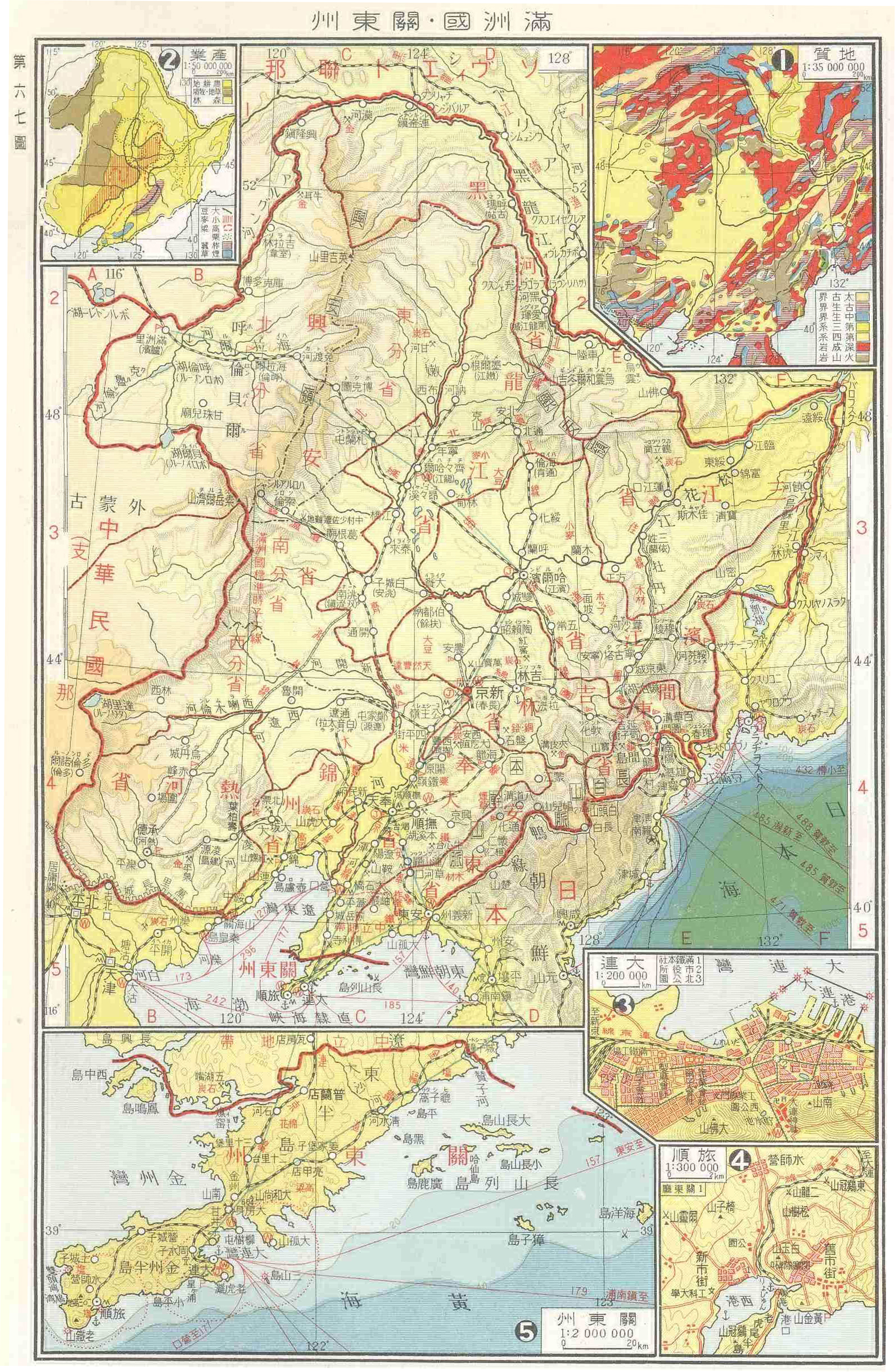Was the “Open Door Policy” of 1900 - 1910 Beneficial to China?
The Policy is not as Effective as had been Thought

Manchukuo. Map. 1932 - 1945. Wikimedia Commons Library. <http://upload.wikimedia.org/wikipedia/commons/2/2a/Manchuria.jpg>.
When the “open door policy” was
initially enforced by John Hay’s open door notes, the policy was
essentially doomed from the start. “The world of international
affairs has thus laid down the lines of an Open Door Era, or conflict,
with America in the breach, and with problems in the solution of which
there are no guiding parallels” (McCormick). Many of the
other national powers involved such as Great Britain, Germany, Russia,
France, and Japan all were hesitant and reluctant to agreeing with
Hay’s proposals (Secretary). Most of the powers evaded giving an
answer of agreement or disagreement by claiming they would only sign if
the others planned on complying as well (Answers.com). As a result, this
led John Hay to have to send out separate notes to the involved powers,
telling them everyone had complied to the agreement in order for the
other countries to follow the policy (Answers.com). However, the compliance
of the countries would soon be found as superficial and the loose
loyalties they held to this policy was the main factor as to why the
“open door policy” was ineffective, leading to many
disastrous results for China.
The largest problem of the policy itself was that
there was little done to enforce the regulations the policy had
declared regarding preserving the trade equality and “territorial
and administrative integrity” (Secretary) in China. Because the
powers claimed a superficial loyalty to the policy’s regulations,
they were more prone to breaking the rules per say, and the number one
candidate that was the most guilty of this charge was none other than
Japan. The ineffectiveness of the Powers to enforce the “open
door policy” led to many of the main causes leading up to the
Boxer Rebellion, the Russo-Japanese War, and causes for World War I
(McCormick and Answers.com). The former of the three has been
explained quite thoroughly as well as its detrimental consequences on
China, however the other two deserve some elaboration.
The Russo-Japanese War of 1905 was essentially a
fight between the two eastern powers of Russia and Japan over Manchuria
- which is northeast China - and Korea dominance in those areas. The
victor of the war to everyone’s surprise was the Japanese, who
after the battle had been recognized as the dominant power in Asia at
the time (Answers.com and McCormick) As with any war, there are
always casualties and destruction from people caught in the crossfire
such as the Chinese people in Manchuria, not to mention it was
territory belonging to a completely separate government than the two
nations fighting over the influence in that area. It was the Treaty of
Portsmouth that ended the feud and declared that China still retained
sovereignty yet Japan was to have control of certain ports that were
originally Russia’s as well as control over Korea (McCormick). This was the first violation against the open door policy
in that Russia and Japan were competing for territory and influence in
an area of China which disagreed with the policy’s rule of
keeping China’s territorial integrity preserved.
As a result of the Russo-Japanese War, other
treaties and policies went in place among the Powers so they could
ensure their investments in China were not at stake. On the U.S. end,
they wanted to keep their investments in the railroads in those areas
safe, so they signed the Taft-Katsura and Root-Takahira Agreements to
help with American-Japanese relations indicating the U.S. had
acknowledged Japan’s influence in Korea and that the “open
door policy” was still intact regarding Chinese territory
(Answers.com). However, by 1915 Japan had secretly sent a letter enlisting
twenty-one demands to the Chinese government involving giving the
Japanese control of various aspect of China’s economy, territory,
and military (Twenty-One). In response, since the “open door
policy was nothing more than a name” (McCormick), the U.S.
reinforced the policy by creating the Nine Power Treaty of which Japan
had agreed to by gving up most of its demands, but the U.S. had
appeased some of them (Answers.com). Finally in 1931, Japan boldly advanced
and overtook Manchuria, renaming it Manchukuo in the early
1930’s, essentially dissolving the “open door policy”
for a long time (Answers.com). The fact that the U.S. had to re-establish
and create new treaties to support the “open door policy”
rules indicated the treaty was falling apart in itself, with no help
from Japan blatantly disregarding the policy with no actual consequence
until the end of the World War II. The “open door policy”
would not be revived again until Deng Xiaoping’s rule in China
after the fall of Mao and his Cultural Revolution.

